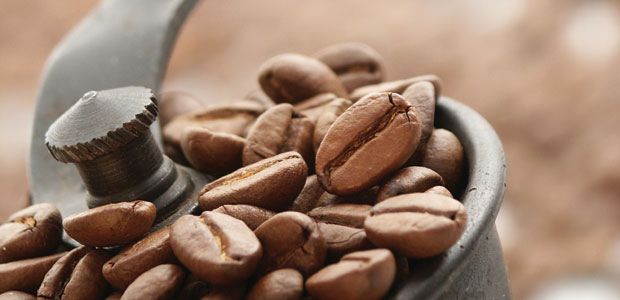Advertisement
Coffee, Tea, or Chocolate
We all know that eating freshly grown, unsprayed food tastes better, but what about the tea and coffee that we drink or the chocolate that we wrap up for our loved ones on Valentine’s Day? Is it superior because it’s stamped with the word “organic”? Organic food in general is healthier simply because of the … Continued

We all know that eating freshly grown, unsprayed food tastes better, but what about the tea and coffee that we drink or the chocolate that we wrap up for our loved ones on Valentine’s Day? Is it superior because it’s stamped with the word “organic”?
Organic food in general is healthier simply because of the way it’s grown. Organic coffee, tea, and cacao (for chocolate) are grown and stored by using environmentally sound practices and without the use of synthetic pesticides or fertilizers, resulting in lower risk to the consumer, the farmers/labourers who grow the product, and the environment.
Conscientious Coffee
Drink a cup of organic coffee in the morning, and you’ll be supporting more than your need to kick-start your day.
Most certified organic coffees are also marketed as “socially responsible” or “fairly traded.” This means that the coffee beans have been sourced through partnerships with village co-ops in coffee production countries where the producers receive a fair price for their beans while strictly observing organic growing principles.
Decaf drinkers also come out ahead with certified organic decaffeinated coffees that have employed the Swiss water process, which uses only water to remove the caffeine.
Trustworthy Tea
Curling up with a freshly brewed cup of your favourite tea is far more satisfying when you consume an ethically grown, organic product. As with coffee, organic tea may also have been sourced through co-ops where the growers have been paid a fair price.
You may think twice about drinking nonorganic tea when you think about what is being added to the soil, and to the surrounding environment. Think about the nonorganic apple you can carefully and thoroughly wash before eating; remember the first water that you apply to your tea leaves or coffee beans is the water that brews your cuppa.
Charming Chocolate
Who can resist a square of bittersweet dark chocolate–especially on Valentine’s Day? You’ll do your sweetheart one better if you ensure that the label on that “food of the gods” includes a certified organic sticker.
That sticker ensures that the chocolate manufacturer has not only sourced pesticide- and GMO-free cacao beans but that they also follow organic production principles. Organic certification also ensures that if milk powder is used, it is free of rBGH (recombinant bovine growth hormone), an artificial hormone given to cows to increase their milk production.
Looking for a special treat for your Valentine sweetheart is as easy as coffee, tea, and chocolate…just be sure to check for the certified organic label.
So…is Organic Healthier?
Studies reported by The Organic Center (a nonprofit US centre for scientific research into organics) in a January 2005 State of Science Review concluded that a shift to organic farming methods can increase average antioxidant levels from a few percent to over 200 percent, with the average increase being about 30 percent.
Since coffee, tea, and chocolate are antioxidant-rich products, it stands to reason that organic farming practices will only enhance their powerful health benefits.





